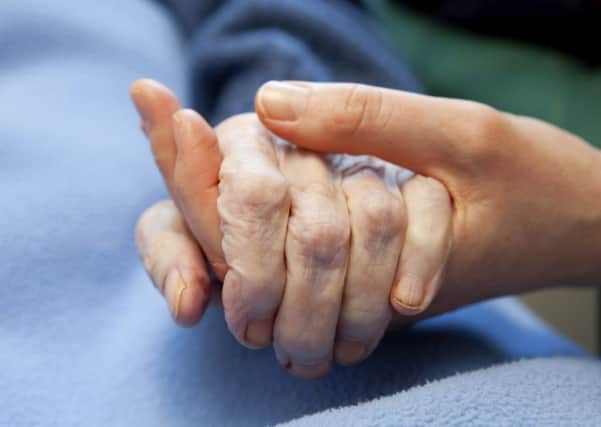The truth behind Scotland's care crisis


The ‘We care, do you?’ blueprint has been published by UNISON Scotland and is the latest in a series which looks at the impact of austerity cuts on the country’s public services and the people who deliver them.
It is based on a freedom of information request to all local authorities in Scotland, and on a survey of home carers across the country.
Advertisement
Hide AdAdvertisement
Hide AdThe survey revealed: nine in 10 (88 per cent) said they were limited to specific times for client visits, with many reporting this was too short a period to properly cater to a client’s needs.
Four in five said they believe the service has been affected by budget cuts or privatisation with carers saying the emphasis was now on “quantity rather than quality”.
Over a quarter (26 per cent) said they were not paid for their travelling time.
Two thirds (66.5 per cent) said they did not have anywhere to go between visits to have a meal, hot drink or toilet break. Nearly half (43 per cent) said they worked longer than their contracted hours.
Advertisement
Hide AdAdvertisement
Hide AdCarers paint a picture of not having enough time to properly care for the vulnerable people who rely on them. The assertion from councils that 15 minute care visits are only for the most minimal needs was roundly contradicted by carers, with some stating that scheduling did not account for travel time between visits.
Many carers are also not being paid for the time they spend travelling between clients, or reimbursed for the costs in doing so. Twenty-five councils said they pay travelling expenses, but four were only for their own staff; three did not pay at all and one council said it varied.
UNISON Scotland is campaigning for local authorities to sign up to its Ethical Care Charter for home care services, which sets minimum standards to protect the dignity and quality of life for people who need home care.
Stephen Smellie, UNISON Scotland’s depute convener, said: “This report highlights the shocking truths of a dedicated, caring workforce who are being stretched to the limit, often resulting in their own stress and ill-health.
Advertisement
Hide AdAdvertisement
Hide Ad“The most vulnerable people in our society rely on the services our home carers provide. They deserve better, much better – and so do care workers. This should include a decent, and reliable, wage for the work they do, with proper facilities and a workload which allows them to do their job properly.”